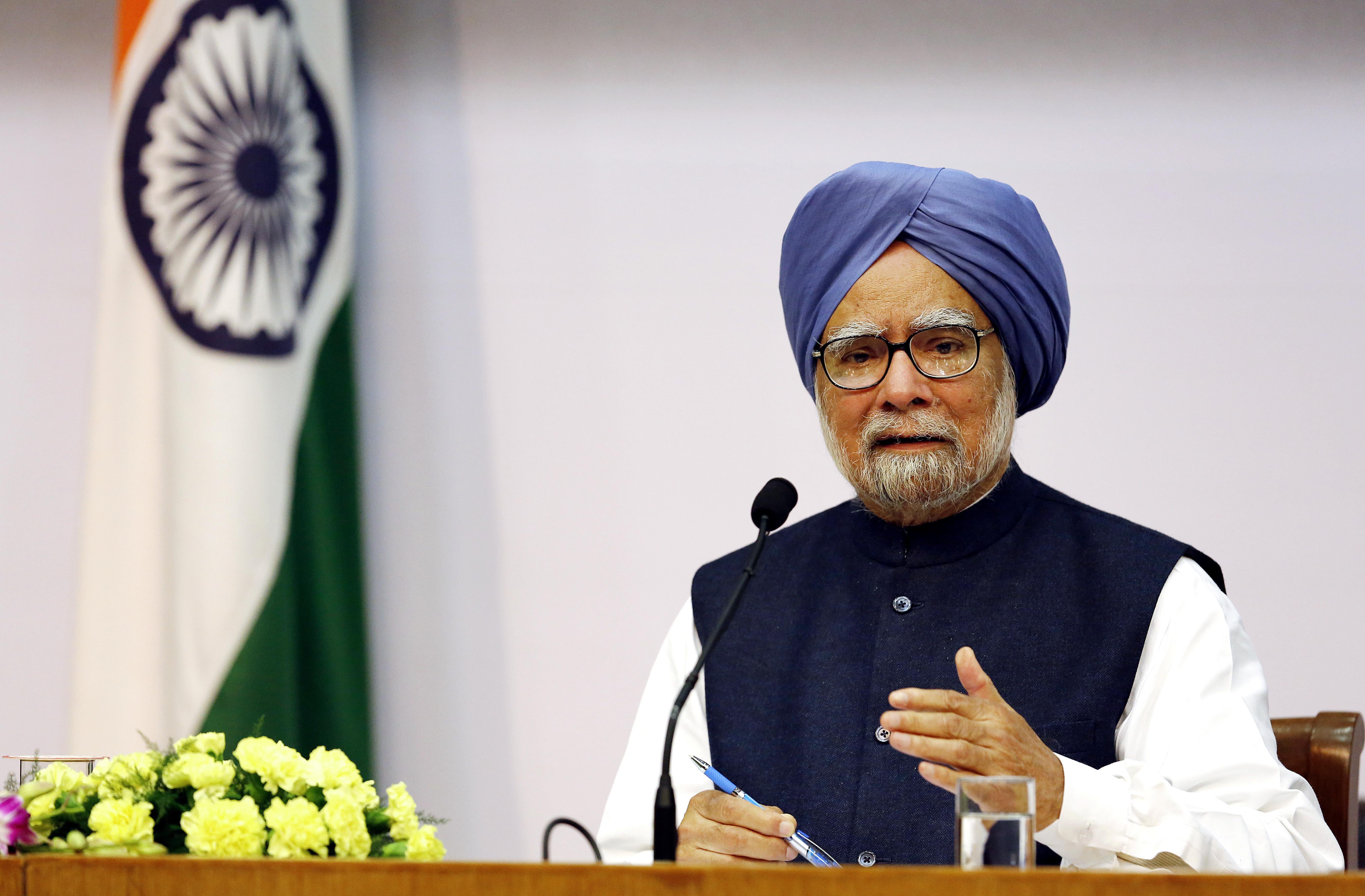In the abstract, it’s hard to imagine a situation under which a leader retires after a decade-long tenure under which more than 137 million people were lifted out of poverty and be generally considered a disappointing failure, but that’s exactly the situation facing Indian Prime Minister Manmohan Singh, who officially announced today, as had been widely expected, that he will be retiring after this year’s elections.
For at least the last two years, Singh’s government has looked adrift and somewhat lifeless, and the economic gains of his early tenure are starting to look to many as if they happened in spite of his leadership rather than because of it. GDP growth rates have fallen dramatically since the double-digit numbers of his early tenure. The business community complains of slow economic reforms while inequality levels continue to rise. On the foreign policy front, the government’s full-throated response to the arrest of a diplomat in New York looked either bizarrely histrionic or meekly ineffectual depending on your perspective.
Most importantly, his government has been implicated in a seemingly endless series of corruption scandals, though he himself has never been personally implicated in any of them. The anger over corruption led to the massive street protests of 2011. Even the moment he considers the high point of his tenure—the U.S.-India nuclear deal approved in 2008—has been tarnished by WikiLeaks cables alleging vote-buying by the Congress Party.
A former finance minister given much of the credit for the structural reforms of the Indian economy in the early 1990s, Singh came into his job with an impressive résumé. The son of a fruit trader from a small village in what is now Pakistan who went on to earn a Ph.D. at Oxford, he also brought an inspiring life story combined with an even-keeled, technocratic temperament to the job.
It’s still early to say for sure, but the smart money right now is on Singh’s Congress Party losing out to the opposition BJP in this year’s vote. The contrast couldn’t be greater from the two men vying to replace him: the unpopular scion of the country’s most powerful political dynasty and a charismatic nationalist accused by the United States of abetting religious violence.
Singh certainly has accomplishments to point to during his tenure (some less heralded, such as the improvement in economic relations with Pakistan). But right now, prospects look pretty grim for his place in history. The prime minister said ruefully in his press conference that “history will be kinder to me than the contemporary media.” He’d better hope so.
